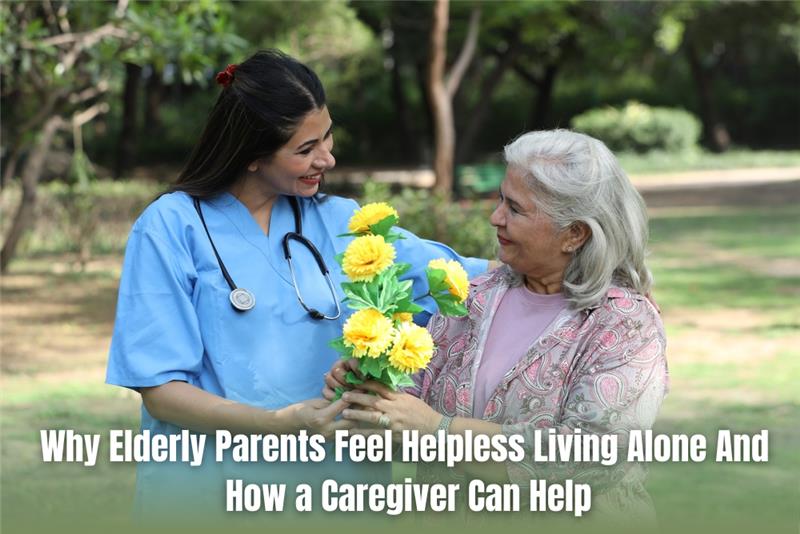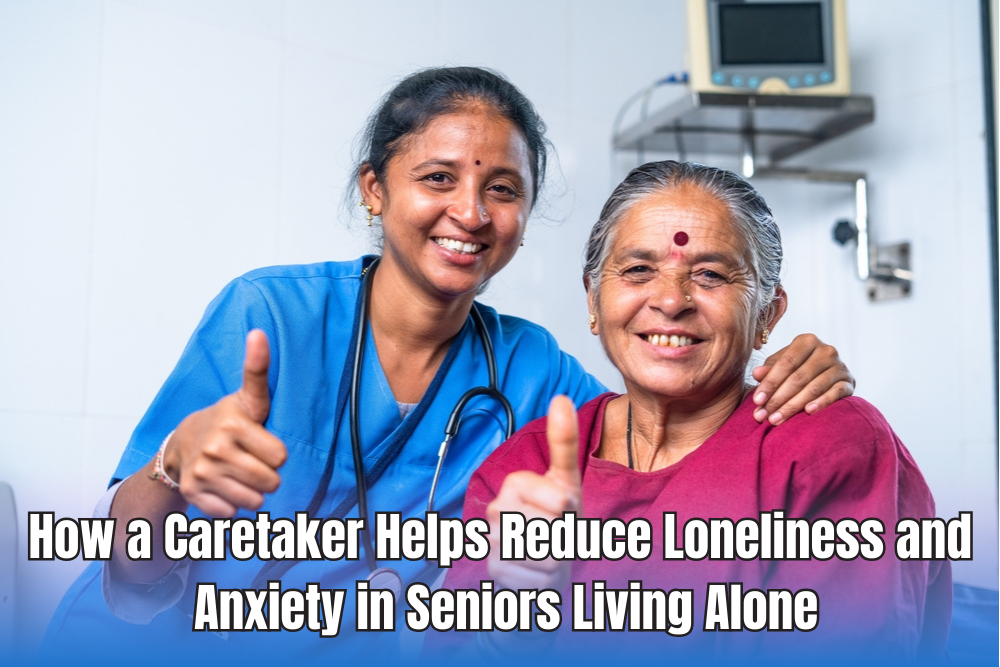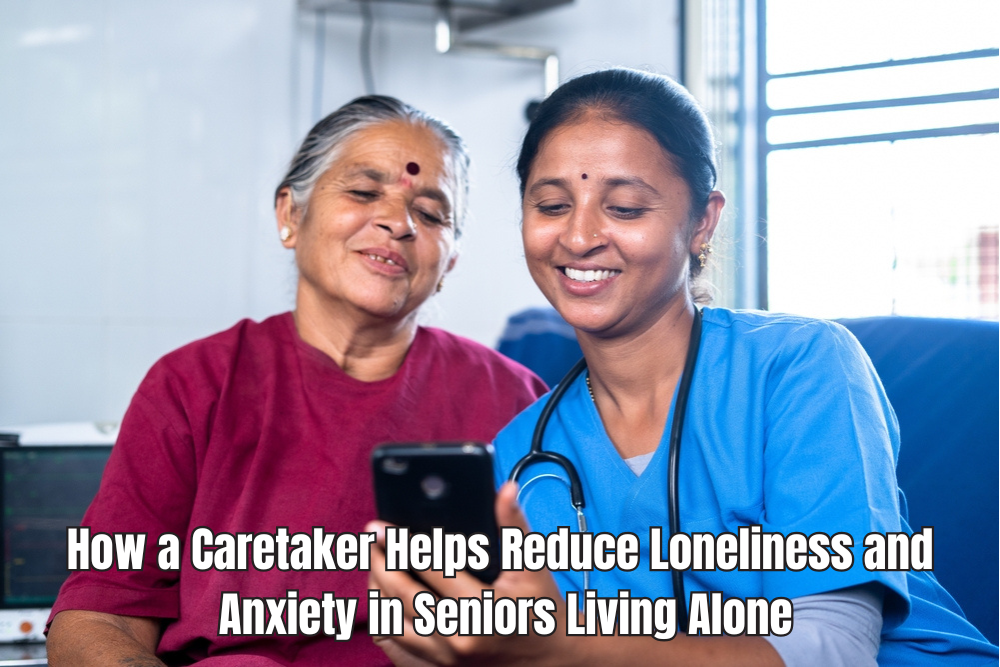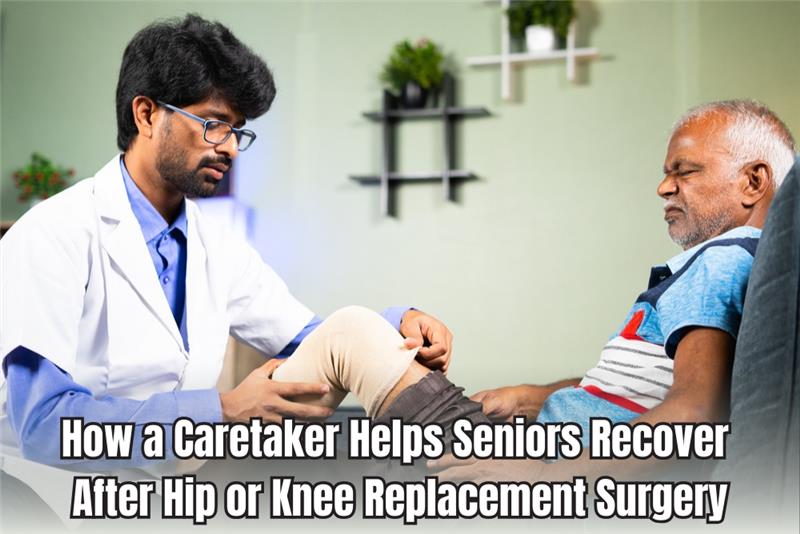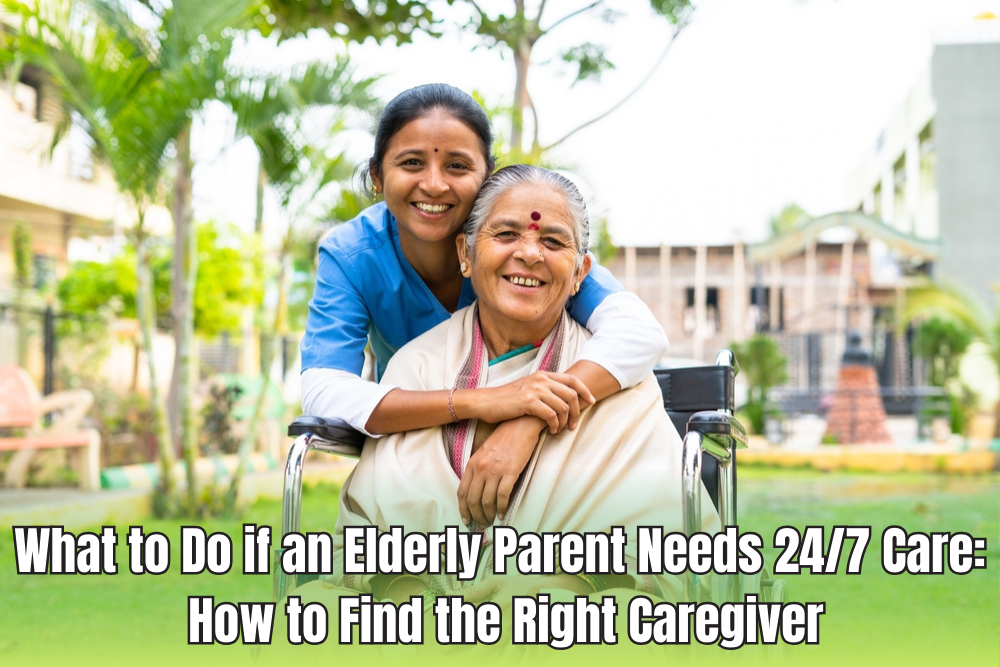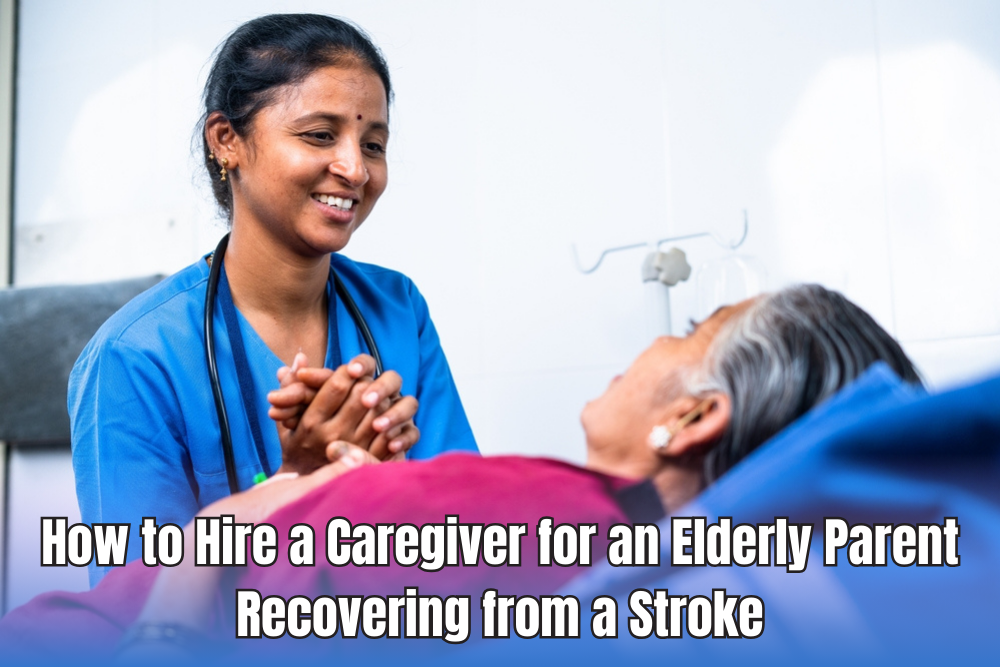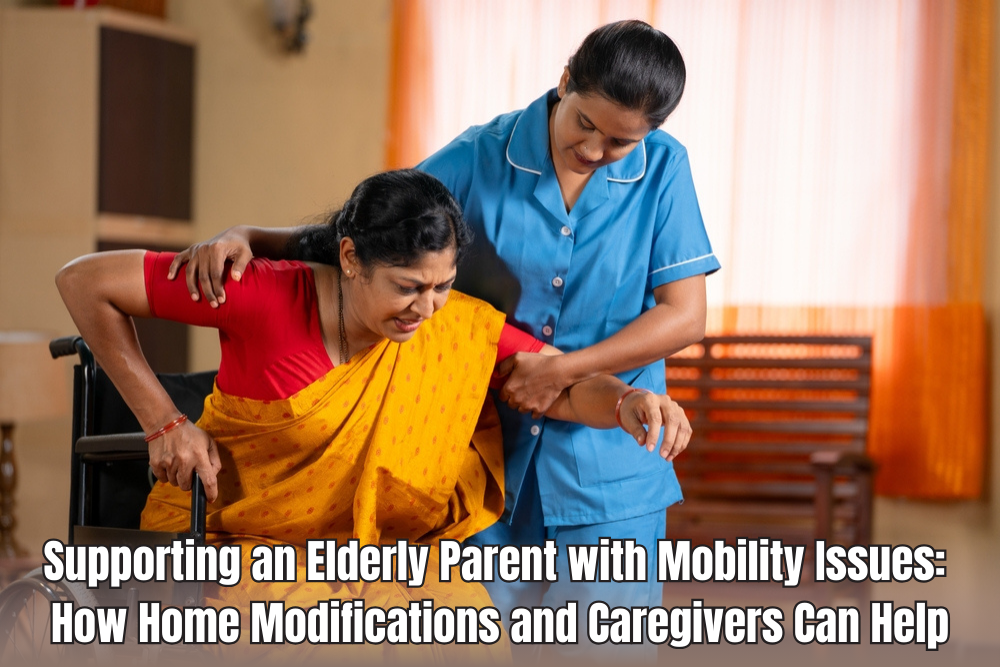As parents grow older, many prefer staying in the comfort of their own home. However, when they live alone, they may begin to feel helpless — both physically and emotionally. Tasks that were once simple become difficult, and the absence of regular company can take a toll on their mental well-being.
In this article, we’ll explore the common reasons elderly parents feel helpless when living alone, and how a trained caregiver can help restore their confidence, safety, and sense of independence.
Why Elderly Parents Feel Helpless Living Alone
1. Physical Limitations
Age-related conditions like arthritis, osteoporosis, or poor eyesight can make it hard to move around, cook, or even bathe safely. Many seniors worry about falling or injuring themselves with no one around to help.
2. Memory Issues and Confusion
Forgetfulness or conditions like early-stage dementia can make it difficult for seniors to remember important tasks — from taking medicines to locking doors. This loss of control often leads to frustration or fear.
3. Loneliness and Isolation
Without family or friends visiting regularly, elderly parents may spend entire days alone. The lack of social interaction often leads to feelings of isolation, anxiety, or even depression.
4. Fear of Emergencies
A common fear among seniors living alone is: “What if something happens and no one’s there to help?” Whether it’s a medical emergency, a fall, or simply needing someone to talk to — the absence of support can make them feel vulnerable.
5. Difficulty Managing Daily Tasks
From grocery shopping to cooking and keeping the house clean — daily chores become exhausting. Many seniors hesitate to ask for help, silently struggling with things they once handled easily.
How a Caregiver Can Help Restore Independence and Peace of Mind
1. Helping with Daily Activities
A caregiver assists with tasks like bathing, dressing, meal preparation, and taking medications — ensuring that seniors are well cared for and comfortable every day.
2. Offering Companionship
Having a caregiver around gives seniors someone to talk to, share stories with, or enjoy a walk. Regular social interaction keeps the mind active and helps reduce loneliness.
3. Providing Safety and Monitoring
Trained caregivers watch out for fall risks, ensure a clutter-free environment, and help seniors move around safely — significantly reducing the chances of accidents.
4. Supporting Health and Wellness
Caregivers help with regular health monitoring — like checking blood pressure, reminding them to take medicines, or coordinating doctor visits. They also encourage light physical activity or stretching, which helps keep seniors mobile.
5. Bringing Structure and Routine
Many elderly people feel lost or restless without a daily structure. A caregiver helps create a healthy routine — from waking up, eating meals on time, taking medications, and even leisure time.
6. Being There During Emergencies
Whether it’s a fall, a health concern, or sudden anxiety — having a caregiver nearby means immediate help is available. This gives both seniors and their families peace of mind.
Why Families Feel Relieved with a Caregiver’s Help
When elderly parents live alone, children often worry constantly about their safety and emotional health. With a professional caregiver:
- You know someone is there 24/7 to support your loved one.
- You feel less guilty about not being physically present.
- Your parents receive proper care and attention from someone trained and trustworthy.
At Shree Swami Samarth Patients Seva (www.sssps.in), we provide reliable, experienced caregivers who help elderly individuals live independently and confidently — even when they are alone.
FAQs: Helping Elderly Parents Living Alone
- What are the signs that my elderly parent needs a caregiver?
Look for signs like missed medications, falls, confusion, untidy living spaces, or expressions of loneliness and fear. - Can a caregiver help my parent stay independent?
Yes, caregivers assist only where needed, allowing seniors to stay as independent as possible while ensuring safety. - What if my parent resists the idea of a caregiver?
Start with part-time support and introduce the caregiver as a companion or helper. Gradual exposure often makes them more accepting. - How do I choose the right caregiver for my parent?
Choose someone from a trusted agency, preferably trained in elderly care and familiar with conditions like dementia, arthritis, or diabetes. - Is it affordable to hire a caregiver in India?
Caregiver costs vary, but many agencies offer flexible packages to fit your needs and budget.
Conclusion
It’s painful to see our elderly parents struggle, feel helpless, or live in fear. But with the right care and companionship, they can enjoy their golden years with dignity and comfort.
A professional caregiver not only helps with daily tasks but also brings companionship, safety, and emotional support — making a world of difference for seniors who live alone.
If you’re considering caregiving services, trust Shree Swami Samarth Patients Seva (www.sssps.in) to provide compassionate, trained caregivers for your elderly loved ones.


